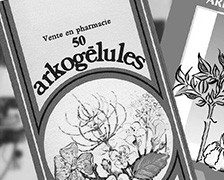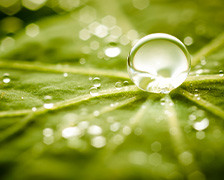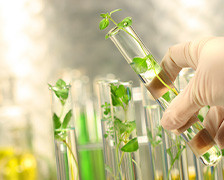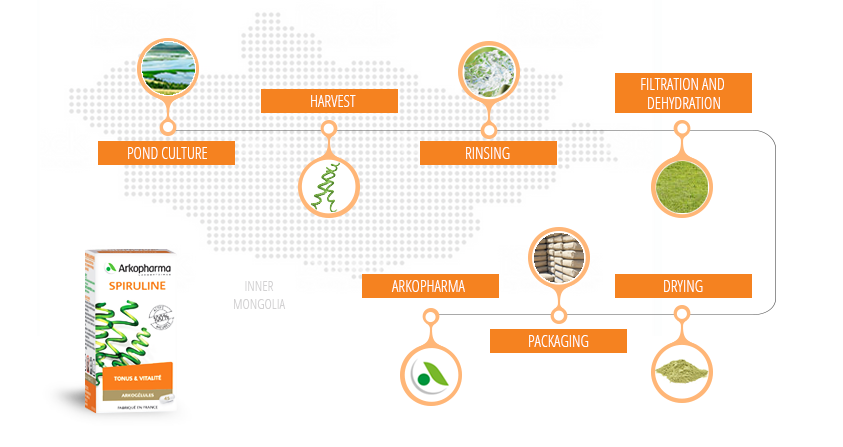Spirulina, algae for energy

Historically, spirulina, one of our planet’s oldest living plants, was used as food by the Aztecs. This algae had already been eaten in Africa for more than 100 years, before becoming famous thanks to research into it led by NASA.

Where does Arkopharma Laboratories’ spirulina come from?
The spirulina used by Arkopharma Laboratories is cultivated in Inner Mongolia, in a protected area.
The Inner Mongolia Autonomous Region mainly consists of mountain ranges. The plateau extends over 3,000 km from north-‑east to south-‑west and most of the territory is situated more than 1,000 m‑above sea level.
In addition, the spirulina for Arkopharma is controlled by ECOCERT® in accordance with the ecological production standard for freshwater micro-algae, and is a guarantee of very high quality. The cultivation of spirulina follows natural processes: the algae is cultivated in ponds, harvested, then filtered and rinsed in water so as not to alter it. It is then dried and undergoes a series of tests to check its quality.
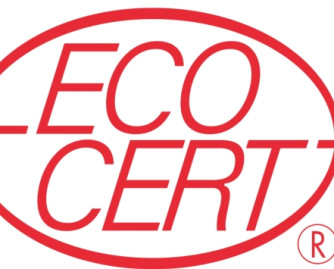
The manufacturing process for spirulina
When to use spirulina?
In case of temporary fatigue
Exercise or sport promote the production of free radicals, which contribute to muscle fatigue. Spirulina protects cells from the damage caused by free radicals, whether at times of stress, or in normal conditions.
This property can be attributed to some of its constituents which have antioxidant qualities.
To promote energy and vitality
Spirulina has constituents that can contribute to the body’s energy and vitality. These components are easily absorbed by cells and enable the release of energy.
Due to its very rich nutritional profile, spirulina is used among other things for energy and nutritional purposes. Many people use it for its energy properties. It helps to restore energy and vitality, especially at times of temporary fatigue.
As a dietary supplement
Spirulina exists in the form of a dietary supplement and is available in pharmacies.
Toxicological studies have shown that spirulina is well tolerated. It is also included in the list of substances referred to as “harmless” by the FDA (Food and Drug Administration = United States body for the management and regulation of health products).
Note that in Europe, dietary supplements are strictly regulated. They have to meet obligations of quality, safety, labelling and composition, among others.
